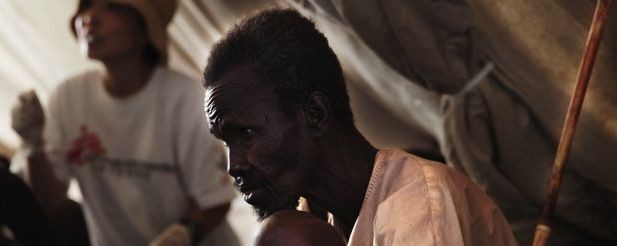Doctors Without Borders (MSF), an emergency medical organization, says it is scaling up work in Melut, Upper Nile State, in order to care for about 15,000 people displaced by fighting.
Besides Melut, a government-controlled area in the center of the state, MSF is also working in Nasser, an opposition-held territory in the east.
Both towns are accessible by air. In early February it was reported that MSF was building a new airstrip in Melut to facilitate aid operations in the town, rather than relying on the airstrip in the nearby oil-producing area Paloich.
Access to many other parts of the state was cut off during mid-February clashes around Malakal, during which MSF facilities were looted and staff threatened at gunpoint. Many health care facilities across the state have been either abandoned or destroyed, including the main civil hospital.
Around Melut, the population of displaced surged in February as people fled northward. From a figure of about 3,500 IDPs in late January, the number rose to about 15,000 at present, including mostly women, children and the elderly.
In a press release on Tuesday, MSF explained that it launched an “emergency response” in Melut mid-February, and since then its doctors have been conducting around 100 outpatient consultations per day.
“They have also vaccinated 4,500 children under five against polio and measles, and are planning to distribute 3,600 kits of essential relief items,” says the statement.
Isaac Ooko, MSF’s deputy head of mission in South Sudan, said, “We are seeing large numbers of people coming from Malakal, Baliet county and other areas to the south of Melut. They are arriving in trucks as well as by boat.”
Some of the people in the camps have been displaced two or even three times since armed clashes broke out in the south of Upper Nile state. Many walked for several days to reach the camps with little food or drinking water.
As quoted by MSF, one of the displaced residents said she came from far away and needed food for her children. Ajith Athor, 45 years old, recalled that she fled first to Baliet county and then to the city of Malakal before heading for Melut county.
“When we came here, we were looking for somewhere safe, with food, but we haven’t found a good place. Now the children are very tired and they need food and water,” said Ajith Athor.
MSF pointed out that the rainy season will come soon and this will increase the vulnerability of the population to malaria, diarrhoea and other diseases.
“MSF teams are preparing for an increase in patient numbers,” the organization announced.
Photo: Ronyo Adwok, a 59-year-old teacher, being treated by MSF at a health facility in Upper Nile, 10 March 2014 (Anna Surinyach/MSF Spain)
Related coverage:
Aid operations scaling up in oil town Melut (6 Feb.)
Fashoda County: 30,000 displaced, 0 doctors (31 Jan.)




